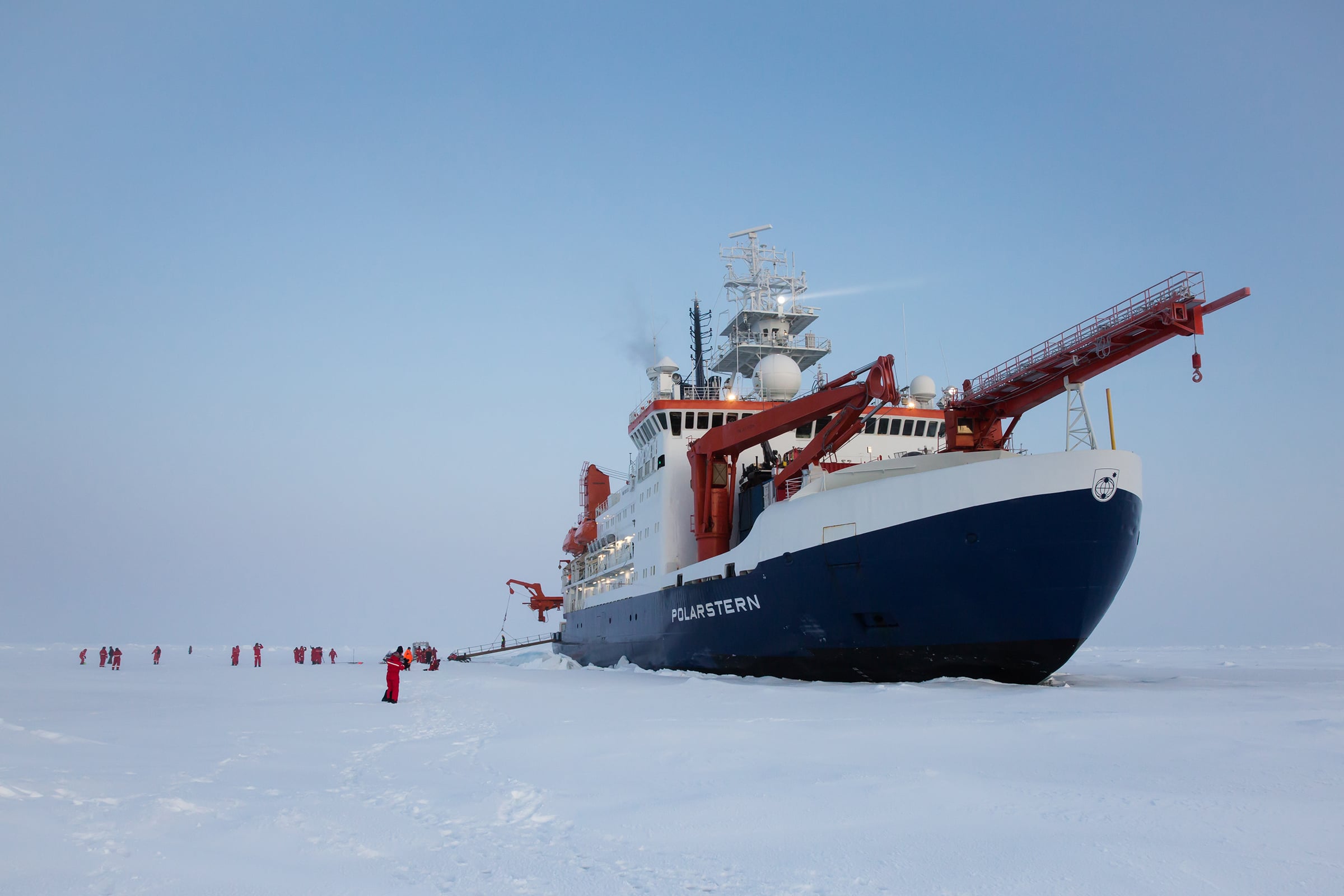A scientist from the University of Georgia is preparing to spend a few months on a ship trapped in the ice in the Arctic. He’s one of hundreds of researchers from 20 countries, working on what’s being billed as the largest polar expedition ever.
To prepare for the unique setting, UGA Skidaway Institute of Oceanography research associate Chris Marsay has trained for sea survival, how to prevent hypothermia and what to do if he encounters a polar bear.
“I would like to see a polar bear, but not too close,” he said.
The international project, called Mosaic, is already underway; the German icebreaker serving as the center of activities and home to the research team is currently stuck in the ice near Siberia.
Marsay will join the expedition in February.
“When I join the ship, it will be during the polar night, so we’ll have 24-hour darkness,” he said. “By the time I leave the ship, it’ll be 24-hour daylight. So I’m there in the transition period, which should be interesting.”
Scientists on this trip are studying a broad range of climate questions related to the Arctic, about the ocean, the atmosphere, sea ice and the life forms that live there.
Marsay’s piece is measuring aerosols, tiny bits of stuff that travel in the atmosphere up to the Arctic, and can end up landing on the ice or in the water. Some of those particles are not good, like lead or mercury that come from factory smokestacks. Some are good, like bits of iron that feed ocean organisms.
“We are interested in aerosols because, in large parts of the ocean, these tiny particles are the source of very important elements and trace elements,” said Clifton Buck, an associate professor at the Skidaway Institute.
“Trying to understand how the change in the sea ice cover impacts things like the biogeochemistry of the Arctic Ocean is really just a fundamental question about how the earth itself operates.”
Buck had originally planned on going on the expedition; Marsay is now going in his stead.
Fundamental questions are core to the research mission. The Arctic is tough to get to, and the challenging conditions make it difficult to research.
“Because it’s such a harsh environment, we don’t really have a lot of data from there,” Marsay said.
But scientists do know that climate change is affecting the Arctic.
“We know that the Arctic is suffering disproportionately from the impacts of climate change,” said Buck. “It’s warming far more quickly than other parts of the world.”
The Mosaic research project is meant to address the gaps in knowledge, with a year’s worth of research while the ship drifts with the ice, a year’s worth of scientists having conversations with each other and sharing ideas, and hopefully a year’s worth of safely distant polar bear sightings.








